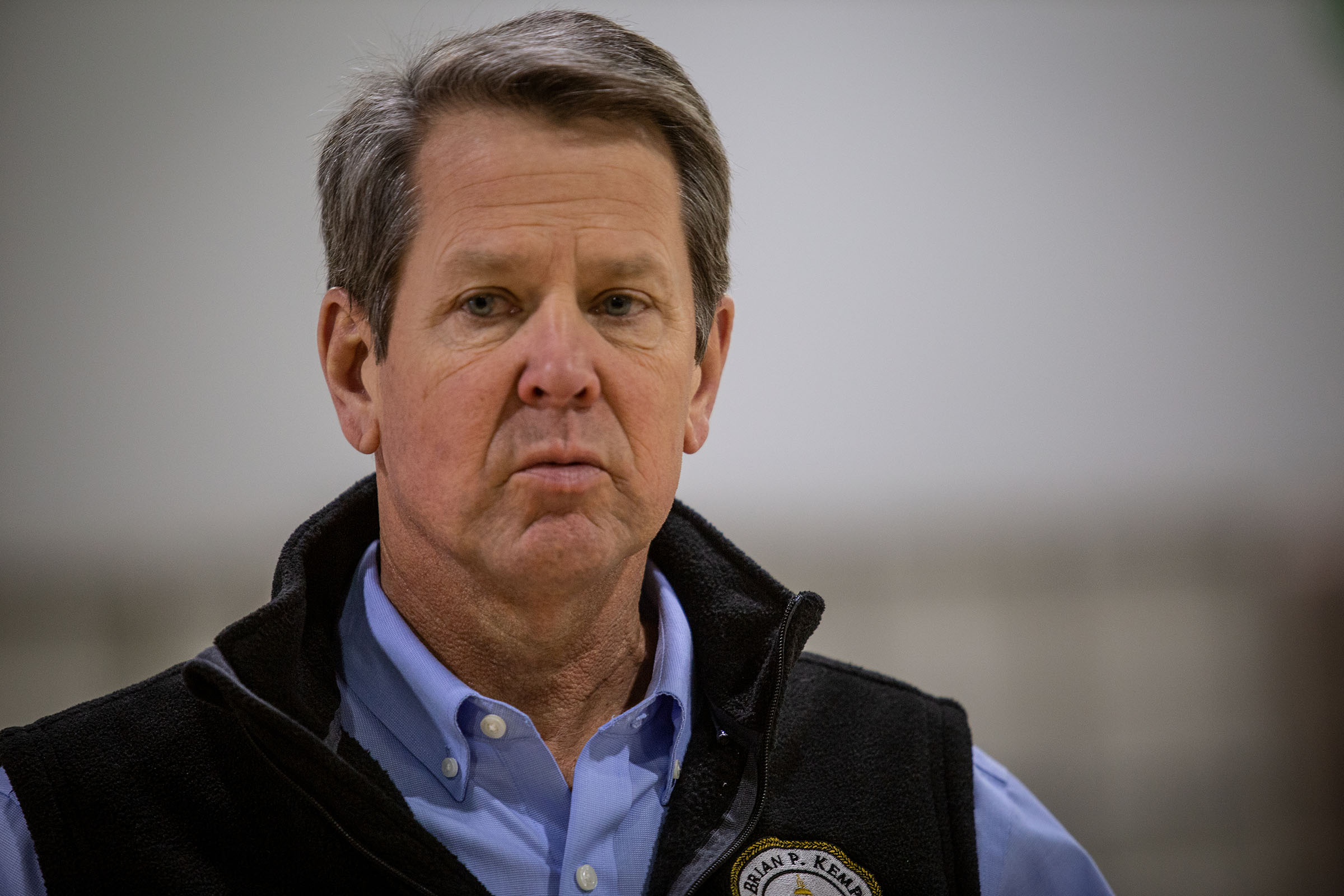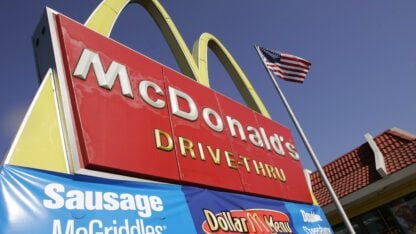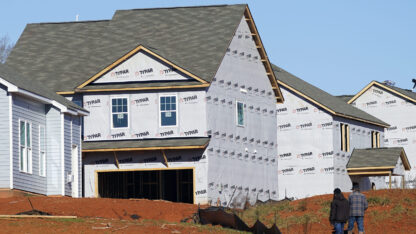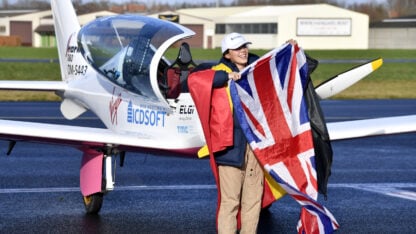Kemp: State-Local Cooperation Helped During Protests In Georgia

The “coordination that we were able to have with the locals, with the Guard, the State Patrol and all our other resources, as well as having surveillance in the air, especially Saturday night, was awesome,” Gov. Brian Kemp said.
Ron Harris, Pool / Associated Press
Updated at 10 p.m. on Monday
Georgia’s governor said Monday that close coordination between state and local officials gave law enforcement the upper hand over the weekend after an initially peaceful demonstration over the death of George Floyd in Minnesota turned chaotic and destructive Friday night in Atlanta.
Republican Gov. Brian Kemp’s comments came during a video teleconference with President Donald Trump and governors across the country, according to an audio recording reviewed by The Associated Press. Law enforcement and national security officials also joined the call.
On Monday night, protesters were still in the streets of downtown Atlanta as the city’s curfew neared. Shortly before 9 p.m., police officers and the National Guard deployed tear gas. Protesters largely dispersed, though some remained, and officers made arrests, apparently on curfew violations. A similar scene had played out the night before.
Kemp declared a state of emergency late Friday and tweeted that up to 500 members of the National Guard would deploy immediately. Late Saturday, he expanded that order to include the entire state for a period extending through next weekend and said he’d authorized up to 3,000 National Guard troops to be deployed as needed to cities having protests.
The “coordination that we were able to have with the locals, with the Guard, the State Patrol and all our other resources, as well as having surveillance in the air, especially Saturday night, was awesome,” Kemp said.
“We had a lot of people that did the right thing. We supported them in peaceful protest,” Kemp added. “And when the curfew hit, they went home. And what we saw was the disruptors stay. And so you knew those were the people that we were going to have to deal with. And that’s what we did over the weekend.”
Trump thanked Kemp, saying he “did a good job.”
“It looked like Atlanta was a much different place with a little time,” Trump said. “But that first night was pretty rough.”
Atlanta police have said 71 people were arrested Friday night and early Saturday morning, 157 people the following night and 64 on Sunday night. The curfew in the city of Atlanta was extended for a third night to begin at 9 p.m. Monday and continue through sunrise Tuesday.
In Savannah, where large crowds demonstrated Sunday in the city’s downtown historic district, there were no injuries or property damage, Mayor Van Johnson told reporters Monday. National Guard troops and Georgia State Patrol officers were dispatched to Savannah to assist local police.
Johnson said Savannah residents proved that “we will protest as a community, we will be mad as a community, we will be upset as a community, but under no circumstances are we going to let anyone destroy our community.”
Savannah police made only 16 arrests on charges ranging from violations of an 8:30 p.m. curfew to a convicted felon accused of possessing a gun, Chief Roy Minter said. Asked whether arrested protesters were local or from out of town, Minter said one was from Virginia and two others came from nearby Georgia cities.
Protests in Athens, Augusta, Macon and Columbus also drew large numbers Sunday and concluded peacefully.
Protests have broken out across the country since Floyd’s death on May 25. Even as he praised Kemp, the president criticized most of the nation’s governors as “weak” for not cracking down harder on the lawlessness.
Derek Chauvin, the white police officer who worked for the Minneapolis Police Department, is charged with third-degree murder and second-degree manslaughter in Floyd’s death. Floyd died after Chauvin pressed his knee into his neck for several minutes, even after Floyd stopped moving and pleading for air.








